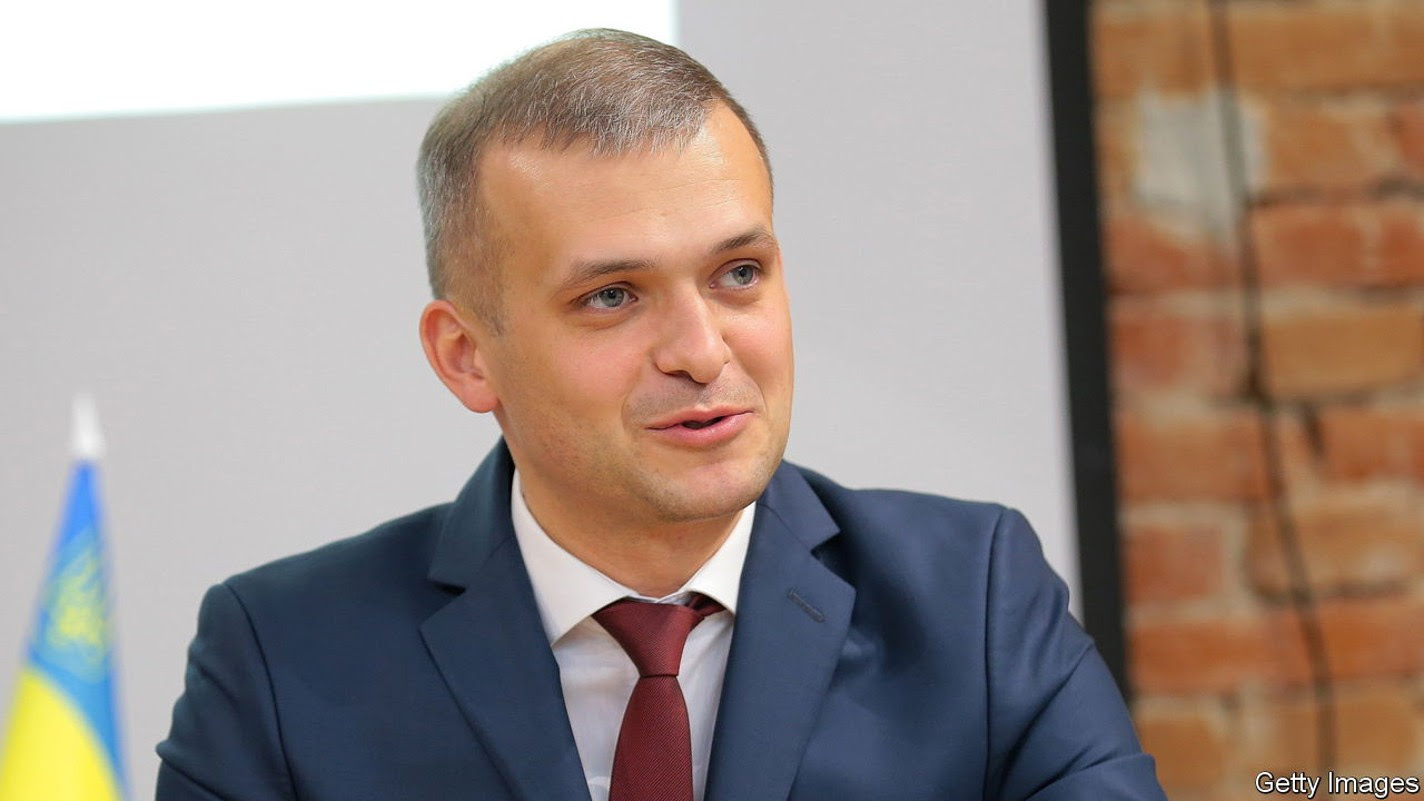The war has diverted resources from anti-graft bodies—and created cover for crooks

Yuriy nikolov, a veteran Ukrainian anti-corruption activist and journalist, has had plenty of scoops in his time. Yet none, he says, mimicking the sound of an explosion, “that blew up like this!” For several days Ukraine has been gripped by stories of corruption, resignations and the sackings of senior officials. Now the fate of Oleksii Reznikov, the minister of defence, is in question. Since he published his explosive article on January 21st, Mr Nikolov says, soldiers at the front have been messaging him to say that while they fight Russia, he is taking on “the enemy at home”.
Mr Nikolov’s story revealed that the defence ministry had signed a contract to buy food for soldiers at grossly inflated prices. The assumption is that the difference between the price due to be paid for eggs and potatoes, and the price that was supposed to be charged, was to be split between ministry insiders and the company contracted to supply the food. (No money actually changed hands, because the article was published before payment fell due.)
The article came out on the same day that Vasyl Lozynskiy, the deputy minister of infrastructure, was arrested for allegedly taking a $400,000 kickback in a case relating to the procurement of generators and other equipment. He was sacked the next day.
On January 24th Mr Reznikov’s deputy resigned. But Vitaliy Shabunin, head of the Anti-corruption Action Centre (AntAC), a respected anti-corruption organisation, says that “trust in the minister has been lost”, and that it would be “unwise” for President Volodymyr Zelensky to leave him in his job. “The trust that Ukraine has from its Western allies is our biggest asset, because it…converts into money and weapons”, he adds. Mr Nikolov believes that in recent weeks Mr Zelensky has been pressured by his Western allies to tackle Ukraine’s corruption problem.
Before the Maidan revolution of 2014, Ukraine was considered one of the most corrupt countries in Europe. Since then the country has built a series of increasingly effective anti-corruption institutions. Yet responding to the full-scale Russian invasion last February diverted resources from bodies like the intelligence arm of the National Anti-Corruption Bureau (nabu).
In summer they returned to the fight against graft. But the war had created a new problem. After the invasion the government stopped publishing procurement contracts for supplies like food. Officials fear that disclosing how much food is being delivered to where could give the Russians valuable information about troop deployments. But the change has given the crooks fresh opportunities to exploit.
Tymofiy Mylovanov, the president of the Kyiv School of Economics and a former government minister, says that although the recent developments “look bad”, they can also be interpreted in a positive light. Ukraine’s anti-corruption institutions are working. nabu was already investigating the food contract before Mr Nikolov’s article, and it did not take a scoop to lead to Mr Lozynskiy’s arrest. Indeed, points out Mr Mylovanov, during Russia’s first attack on Ukraine in 2014, it was in part corruption that “made our institutions—the military, the secret service and counterintelligence—unable to resist. Eight years later you have a military that can resist.”
Mr Shabunin, of the anti-corruption organisation, says that after the Russian invasion, the media and civil-society outfits like his struck a deal with the government: they would cease their attacks on the government in exchange for an official crackdown on corruption. This week, he says, Oleksandr Kubrakov, the minister of infrastructure, kept to the government’s side of the deal by quickly sacking Mr Lozynskiy, his deputy. Mr Reznikov, alas, did not move so smartly. As a result, predicts Mr Shabunin, more stories will appear.
As if on cue, on January 25th Ukrainska Pravda published a story alleging that criminals had defrauded the ministry of defence in a case involving flak jackets that were paid for but never delivered. The ministry had already tried to recover the lost money. But, suggested the newspaper, the fraudsters could only have got as far as they did with inside help.
Yuriy Sak, an adviser to Mr Reznikov, says that the minister’s record stands for itself. He has “zero tolerance for corruption”, the ministry is investigating the procurement affair, and Mr Reznikov’s “primary responsibility is to make sure Ukraine can defeat the enemy”.
No comments:
Post a Comment